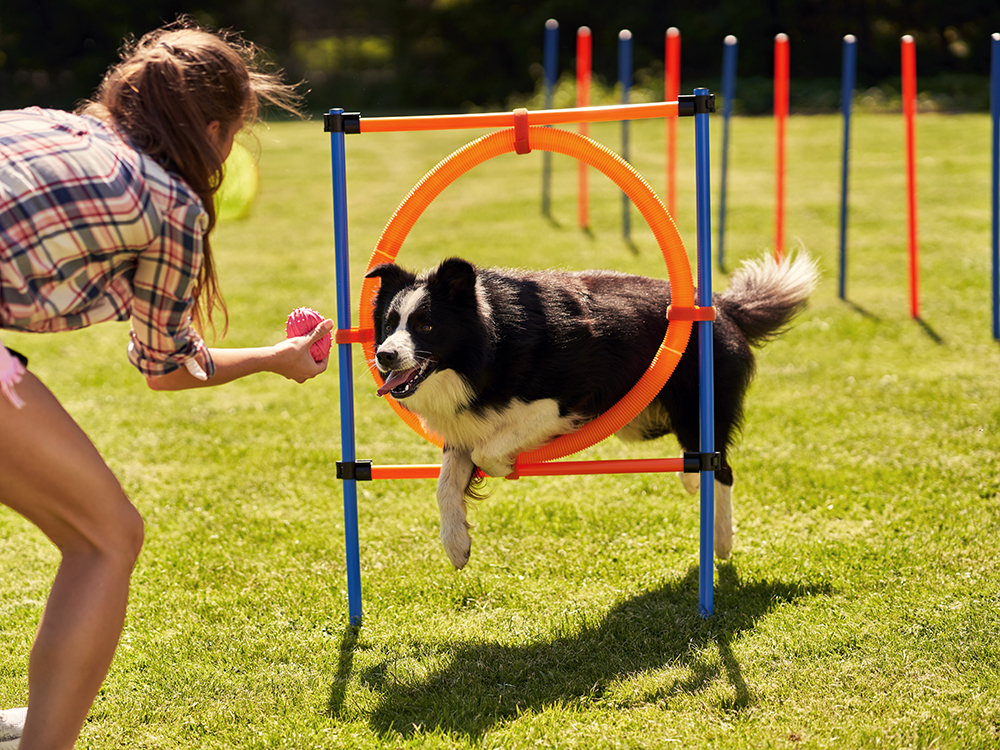A Step-by-Step Approach to Dog Training Success
A Step-by-Step Approach to Dog Training Success
Blog Article
The Ultimate Overview to Dog Training: Change Your Animal's Habits
Effective canine training is necessary for promoting a harmonious connection in between pets and their proprietors. This overview not only aims to outfit you with the needed devices to transform your pet dog's habits but also invites you to check out how these fundamental concepts can lead to a deeper link with your pet.
Understanding Dog Habits
Comprehending dog behavior is crucial for effective training and an unified relationship between pet dogs and their owners. A pet's habits is affected by a combination of genetics, environment, and experiences. Dog training. Identifying these aspects allows proprietors to customize their training approaches to meet the specific needs of their animals
Dogs connect mainly through body language, vocalizations, and facial expressions. For example, a wagging tail can suggest exhilaration or joy, while a tucked tail might indicate anxiety or entry. Observing these hints allows owners to react suitably, strengthening favorable habits and dealing with adverse ones successfully.
In addition, understanding the social framework of canines can offer understandings right into their actions. Canines are pack animals, and they flourish in an organized environment. Developing clear boundaries and consistent policies can prevent confusion and promote a sense of protection.
Additionally, acknowledging the all-natural instincts of pets, such as need to chase or dig, is essential. These instincts can be redirected with ideal electrical outlets, such as play or workout. By thoroughly comprehending these behavior facets, owners can cultivate a positive training experience, ultimately leading to a well-adjusted and obedient canine companion.
Necessary Educating Strategies
Effective pet dog training counts on a selection of essential strategies that can significantly boost the understanding process for both the pet and the proprietor. One fundamental method is favorable reinforcement, which involves gratifying desirable habits with deals with, appreciation, or playtime. This technique urges pet dogs to repeat the habits that bring about favorable outcomes, cultivating a relying on partnership between the family pet and proprietor.
Another secret method is uniformity in expectations and commands. Utilizing the very same spoken signs and hand signals helps the canine recognize what is needed, reducing confusion and advertising quicker knowing. Additionally, developing clear borders and rules is important for effective communication.
Socialization is also a crucial part of training. Revealing canines to different environments, individuals, and various other animals assists them develop suitable social skills and minimizes anxiousness in unfamiliar circumstances.
Finally, perseverance and timing are crucial. Educating sessions should be constant yet short, ensuring that the pet dog continues to be involved and receptive. By employing these vital strategies, proprietors can produce a organized and positive training experience that promotes good behavior and strengthens the bond with their canine friends.
Producing a Training Set Up
Exactly how can a well-structured training timetable enhance a pet's learning experience? A training routine offers consistency, making certain that canines get normal, focused guideline. This predictability assists pet dogs comprehend what is anticipated of them, reinforcing their learning and permitting better retention of commands and habits.
When developing a training routine, it is important to consider the pet's age, breed, and private personality. Youthful young puppies may benefit from much shorter, extra constant sessions, while adult pet dogs might flourish with longer, less regular training periods. Including a range of tasks can likewise keep the sessions engaging, protecting against monotony and promoting interest for knowing.
Furthermore, organizing training sessions at details times of the day can assist strengthen a routine. For example, combining training with everyday walks or playtime can create a favorable association with discovering. It is likewise crucial to consist of time for reinforcement, such as deals with or appreciation, to reward preferred actions without delay.
Lastly, adaptability is vital. While consistency is important, being adaptable to the canine's state of mind or power degree can improve their learning experience. A well-crafted training timetable YOURURL.com ultimately lays the structure for efficient communication and a stronger bond between the dog and owner.
Usual Educating Difficulties
Regardless of having a well-structured training schedule, canine owners usually experience different difficulties throughout the training procedure. One common issue is inconsistency in signs and commands. When multiple member of the family use different terms or tones, a canine may come to be baffled, hindering its ability to discover efficiently.
Another constant obstacle is distraction. Dog training. Canines are naturally interested creatures, and outside stimuli such as various other animals, sounds, or individuals can divert their focus throughout training sessions. This calls for proprietors to develop a regulated environment or gradually introduce distractions to enhance focus
Additionally, varying power degrees can influence training results. High-energy pets might battle to settle and concentrate, while extra laid-back breeds may need additional inspiration to involve. Tailoring the training strategy to fit the specific pet's temperament is vital for success.

Building a Strong Bond
A strong bond between a canine and its owner is essential for effective training and total wellness. Dog training. This partnership cultivates trust, which is vital for reliable communication during the training process. When a dog feels connected and protected to its proprietor, it is more probable to respond positively to signs and commands
To develop this bond, consistency is essential. Establishing a regimen that consists of routine feeding, workout, and training sessions aids create a feeling of stability. In addition, favorable reinforcement methods, such as treats, appreciation, and play, enhance desired behaviors while strengthening the psychological connection.
Socialization is an additional essential facet of bond-building. Exposing your pet dog to different atmospheres, individuals, and various other animals helps them really feel more comfy and positive, improving the bond with their proprietor. Involving in activities with each other, such as strolling, playing fetch, or joining obedience training, advertises team effort and mutual enjoyment.
Final Thought

Comprehending dog behavior is vital for effective training and an unified connection between pet dogs and their proprietors.Reliable pet dog training depends on a selection of essential techniques that can substantially enhance the knowing process for both the canine and the owner.Despite having a well-structured training timetable, pet dog owners typically encounter different challenges throughout the training procedure.In conclusion, efficient pet dog training counts on a comprehensive understanding of canine actions, the application of vital click here now strategies, and the establishment of an organized training routine. By highlighting positive support and consistency, canine proprietors can considerably boost their pets' actions, ultimately making certain an unified relationship and promoting the health of both the pet dog and its atmosphere.
Report this page